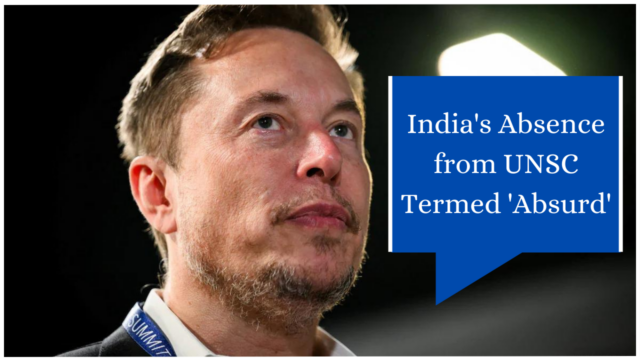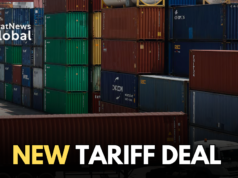Billionaire tech magnate Elon Musk recently expressed his disbelief on social media website X, calling it “absurd” that India, the most populous country on Earth, lacks a permanent seat on the United Nations Security Council (UNSC). Musk’s tweet was in response to UN Secretary-General Antonio Guterres, who had raised concerns about the absence of any African nation as a permanent member of the UNSC.
At some point, there needs to be a revision of the UN bodies.
Problem is that those with excess power don’t want to give it up.
India not having a permanent seat on the Security Council, despite being the most populous country on Earth, is absurd.
Africa collectively should…
— Elon Musk (@elonmusk) January 21, 2024
Michael Eisenberg, a U.S.-born Israeli venture capitalist, also chimed in on X, highlighting the issue of India’s representation. In the exchange, Musk went on to emphasise the need for a revision of UN bodies, stating, “The problem is that those with excess power don’t want to give it up. India not having a permanent seat on the Security Council, despite being the most populous country on Earth, is absurd.”
This social media conversation aligns with India’s ongoing efforts to reform the UNSC. External Affairs Minister S. Jaishankar, speaking at an event in Bengaluru, drew an analogy, likening the Security Council to an “old club” resistant to admitting new members. He criticised the lack of reforms, noting that it harms the effectiveness of the United Nations, calling it a “human failing” that impacts the world’s ability to address critical issues.
Jaishankar had previously used a bus analogy to describe the situation, stating that passengers (permanent members) are unwilling to vacate their seats for others. He expressed concern that the UN’s reluctance to reform might make it “anachronistic,” prompting people to seek solutions elsewhere.
In September, Prime Minister Narendra Modi reinforced India’s stance on global systems needing to adapt to present realities. He pointed out the incongruity between the world of 1945 when the UN was established and today, where the number of UN member countries has significantly increased. Despite this growth, the composition of permanent members in the UNSC remains unchanged.
As calls for reform intensify, the global community faces the challenge of convincing existing permanent members to relinquish power and embrace a more representative and inclusive UNSC. The upcoming Summit of the Future is considered a crucial opportunity to address the growing demand for change in global governance structures.





